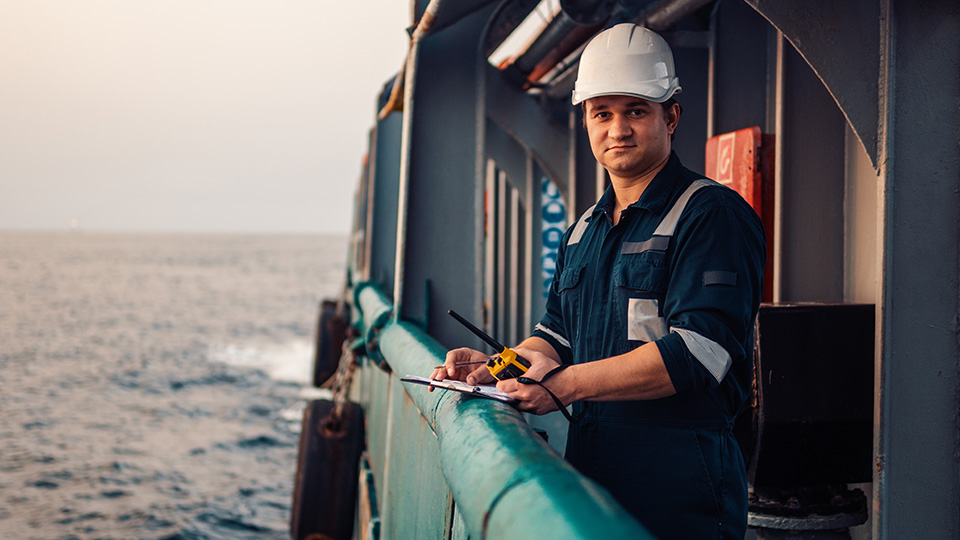
CONTACT BIMCO
Ashok Srinivasan
Manager, Maritime Safety & Security
Singapore, Singapore
- +65 9144 3404
- hsse@bimco.org

The STCW Convention and Code are going to be comprehensively reviewed at the IMO. Read about this and other important happenings at HTW 9, which met in early February 2023.
Human Element Training and Watchkeeping (HTW) is the sub-committee at the IMO which discusses matters relating to seafarers, their training etc in detail. This sub-committee, which works under the auspices of the parent Marine Safety Committee (MSC), meets every year during spring.
The Standards, Training, Certification and Watchkeeping (STCW) Convention and the Code are considered the "bible" when it comes to seafarer training. The STCW 78 Convention was adopted in 1978 and came into force in 1984. Since then, the Convention and the Code have gone through a series of smaller amendments and couple of larger ones, the notable ones being in 1995 and in 2010. In 2019, it was proposed to the IMO that a comprehensive review of the STCW Convention and Code is due. Since then, and after receiving proposals from various countries and organisations, the work of the comprehensively reviewing the Convention and Code has finally begun.
As part of the initial work, a preliminary review of the scope of the work was conducted and aims and principles to be followed during the review were also discussed and finalised at this meeting. Following this, a correspondence group has been established, and will work between the physical meetings to ensure continuity of the work.
Some of the matters that are under consideration are the improvement of quality of onboard training, the issue of availability of training berth on board ships, new technologies including maritime autonomous surface ships (MASS), E-certification, E-learning, the use of simulators, development of new training measures for emerging competencies, bullying and harassment, mental health, revalidation, inconsistencies, different interpretations etc.
BIMCO will keep members updated of the progress from time to time. Please reach out to us with any questions. Please also get in touch if you are experiencing any issues in relation to training of seafarers or if there is a good idea which can improve the standards of training of seafarers. This is the best time to bring it to IMO and include it in the review and reviewing process, which will pave way of resolving existing issues and improving the whole training process. BIMCO, being the voice of shipping is keen to hear from our members on this.
The issue of bullying and harassment including sexual assault and sexual harassment (SASH) has been brought to the fore in recent years. These were recognised by IMO and it was decided with the highest of priority to create a safer work environment on board ships for seafarers. In April 2022, IMO approved a proposal to revise and amend Model Course 1.21 on Personal Safety and Social Responsibility (PSSR). Following this, at HTW 9 last week, the table A-VI/1-4, which is the specification of minimum standards and competence in PSSR of the STCW Code was amended by adding new training provisions to prevent and respond to bullying and harassment, including SASH.
In addition to instructing the amendment of Personal Safety and Social Responsibility course, the IMO designated a joint IMO/ILO joint tripartite working group (JTWG) on these issues. The objective of this joint group is to ensure a safe workplace for seafarers by tackling bullying and harassment in the maritime sector. This group will also work on providing recommendations for future steps, including the development of legislation, mechanisms and policies, and the launching of awareness campaigns by relevant stakeholders aimed at reporting and addressing these matters. The first meeting of this group is expected to take place in Dec 2023.
Model courses
Several model courses were reviewed or validated using the latest guidelines for the development, review and validation of model courses.
These included,
Furthermore, several model courses are on course for revision and validation at the upcoming HTW sub-committees.
Singapore had submitted an information paper on assessing human element in navigational safety using artificial intelligence (AI) based tools in a simulator. This is also accompanied with a presentation on the same topic during one of the lunch presentations. This innovative development can provide world-ready and future-ready navigators capable of transforming maritime workforce. The maritime industry will be the direct beneficiary of this innovative development which enables them to employ better skilled seafarers to handle the challenging environment on board.
A few shipowners are already beginning to adopt this development for use on board their fleet. We encourage members to look into this digital solution which has the potential to greatly enhance navigational safety.
The information paper HTW.9 – INF.5 can be downloaded from IMODOCS website.
Should you have questions, please reach out to us.